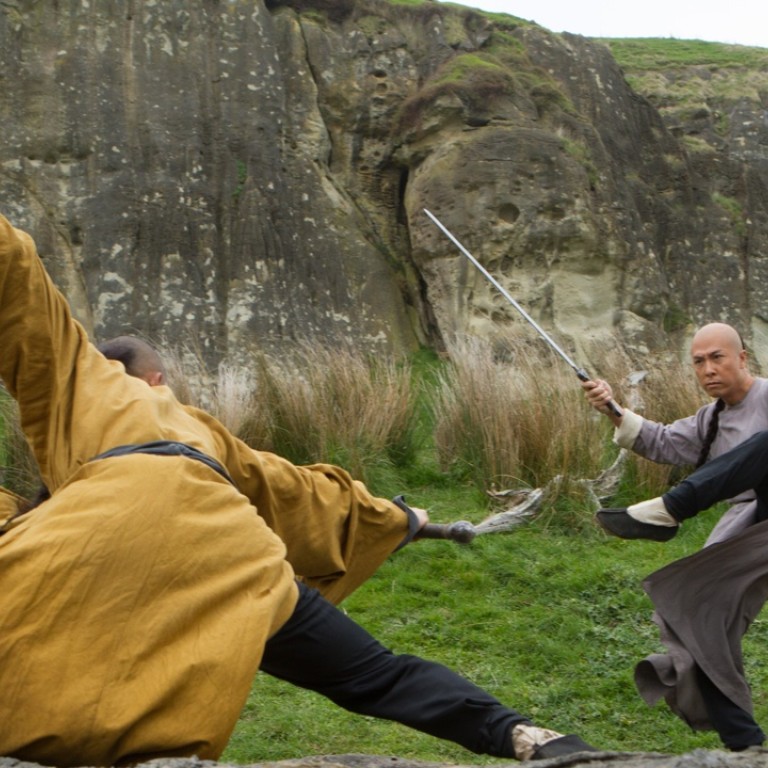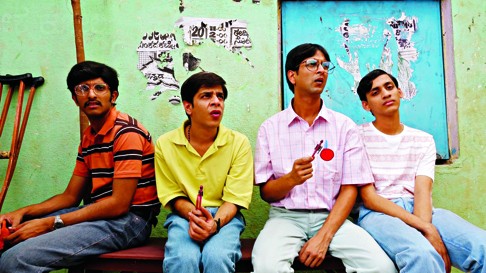
Netflix altered how we watch TV and films, now it wants to change how they’re made
The US streaming giant, following its global expansion, is focused on creating original content that doesn’t follow entertainment industry conventions
A decade ago, the idea that one could sit in front of a computer or small portable device and watch anything they wanted without inserting a physical disc or downloading a file seemed crazy. Fast forward to today, and “streaming” is one of the main methods through which people consume media content.
In January, American company Netflix, the prominent film and TV streaming service, announced it would be available in 190 countries, which would add 30 million new users to its 44 million US subscribers. Using a monthly membership model (which averages about US$8 a month, typically with a month’s free trial), a Netflix user in London can often access the same show or film as someone in Hong Kong, Delhi, Paris, Barcelona, Tokyo. In the mood for a romantic comedy, a documentary, or a hard-core action flick? Nostalgic for an episode of Friends or The Gilmore Girls? It’s all there. No annoying ads. No delays. Stop and start whenever you want. If you enjoyed one series or film, a dozen more just like it are automatically suggested. Being entertained has never been so easy.
But Netflix – like some of its streaming competitors such as Amazon or Hulu – is no longer just about its existing library. Increasingly, it is teaming up with creative teams around the world to create content that is only available through its service. There are six original shows being produced in Japan at the moment, while Angelina Jolie is working an adaptation of the Cambodian-American activist Loung Ung’s memoir First They Killed My Father. This month, Netflix premieres Crouching Tiger, Hidden Dragon: The Green Legend, with Michelle Yeoh and Donnie Yen, and wraps up a second season of Marco Polo.
Experts agree that the old model of watching TV, described as “linear television”, where you watch shows at certain times of the week, determined by the content provider, is on the way out. Now that television consumers are aware of the possibilities, on-demand viewing is a far more attractive option.
“Consumer behaviour is shifting from broadcast TV to on-demand content – especially video streaming around the globe,” says Evaristo Doria, a faculty member at the Institute of International Business – J Mack Robinson College of Business, at Georgia State University,
“It is expected that online content will dominate the world’s internet traffic by 2019.”
Doria, who co-authored a new book on international business strategy titled Oasis: In Search of Extraordinary Business Growth Overseas, predicts that the total market for online video services in the Asia Pacific region will reach US$12.4 billion by 2020, with advertising contributing to most of this market.
VPNs (virtual private networks) have been used extensively to circumvent geo-blocking rules, even before Netflix became officially available in Asia.
Complex licensing issues mean that just because a particular film or TV show can be enjoyed in the US doesn’t mean that a Netflix subscriber in Singapore or Sydney has access to it. The only exception to that is Netflix’s original programming, to which it has exclusive rights, and can stream anywhere the service is available.

Staffers cluster around communal meeting areas to brainstorm: many walls are simply extensive whiteboards, on which ideas are scrawled. Netflix CEO Reed Hastings famously does not maintain an office there; he simply walks the corridors, steps in to one of the many glass-walled conference rooms, meets up with employees in free cafeterias that resemble trendy New York restaurants.

“People are using the product just the way we’d imagined – and the performance of the internet in the countries we’ve launched in is at least as good as we’d expected, in many cases better,” says Netflix chief product officer Neil Hunt, “We do adaptive streaming, which means we match the picture quality with the performance of the internet. The goal is to get no interruptions, no buffers, no pauses, no spinning wheels. We encode all that content at about 15 different levels.”
Ted Sarandos, chief content officer at Netflix, says that sourcing and producing original programming in Asia, for a global audience, is a top priority.
“The most exciting part of Netflix coming to anywhere in the world, particularly Asia, is the ability to take local and regional stories and make them global,” says Sarandos. “Asia is a rich storytelling culture, and there’s fascination around the world with Asian stories.”

Netflix executives say that sometimes the global popularity of a particular show is nothing short of astounding: Narcos, for example, is a French production that uses a Brazilian star and is mostly in Spanish – and yet has strong fan base.
To build on that success, Netflix has ordered or commissioned an eclectic range of original programming for the year: Brahman Naman, a Bangalore-set comedy about a high school quiz champion who takes his nerdy friends on a trip to Calcutta. Other upcoming highlights include Flaked, set in Venice, California, starring five-time Emmy nominee Will Arnett, and Ashton Kutcher’s The Ranch, about a failed footballer who returns home to run the family ranch.


“Even the idea of an episode is old-fashioned,” says Yellin. “Telling a story could be like reading a book. It can jump from point to point, and can start altering the storytelling. We are talking with writers and filmmakers and around the world. We should be able to expand what the story is, even before and after you hit play.”

